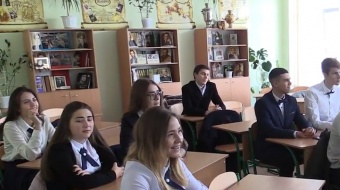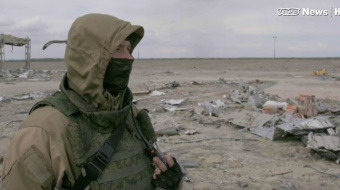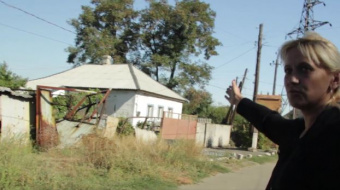In Donbas there was more failed capitalism than Soviet vestiges - says the founder of the platform "Isolation”. Part 1
In Donbas there was more failed capitalism than Soviet vestiges - says the founder of the platform "Isolation”. Part 1
The foundress of the platform "Isolation", Lyubov Mikhailova, told Re: mines why so few events took place in the cultural life of Eastern Ukraine and what opportunities have been and will be for the development of creative industries in Donbas
Lyubov Mikhailova, the foundress of Donetsk Platform for Cultural Initiatives "Isolation", tells about what happened with the culture of the east of the country, the possibility for the development of creative industries in Donbas and the new post-industrial reality of the miners' region.
- What happened in the cultural and humanitarian spheres of Donbas during the last quarter-century?
In all the years of independence of Ukraine in Donbas there was no cultural or social development by wish of local oligarchic elites including those related with the Russian capital. As it is now becoming clear, this was done deliberately in order to disintegrate the region and to wrest it out from the national context. Donbas, if we take it in general, lived quite isolated. For many years there was no culture of third places and traditions to gather to chat, discuss, talk to the authorities to change their city and, in fact, himself.
You know, we are native of the region where the last large-scale wave of history has fallen to industrialization. And during it, John Hughes and local industrialists like Makeev and Gorlov got together their employees from where it has only been possible. Then the Soviet power behaved just as well. It began to put into practice a tough cultural ideology based to some extent on the industrial component. "One for all and all for one", factories with 40 thousand employees, "all together follow the party line", and so on. Eventually, the Soviet Union has collapsed, and that mentality not only remained, but carefully maintained: what the mine manager would tell - we then will do.
In fact, over the past 25 years, nothing has changed: mono-industry and mono-ideology have been, and remain in all things. They only passed into other hands.
Mass management is carried out through the following trio: football, beer, perhaps, ballet. In short, the region was taken to a "stable" position, and it stays in this "stability" as well.
- How to cope with this post-Soviet mentality?
You know, in the "Isolation" we recently had a lovely Georgian exhibition which was shown at the Venice Biennale. It is called "Crawling borders" about how a border crawls in Georgia. There I spoke with a former Lithuanian ambassador. The conversation turned to the post-Soviet mentality. She told me: "I want you to fix: all these cliches like the expression "post-Soviet" were imposed to us by opponents. Let's better talk about the European orientation than endlessly discuss the post-Soviet past".
And she was right. Yes, something Soviet remained in the region in the economy, in mentality, but perhaps there was more failed capitalism. Such a situation was everywhere in Ukraine: we came out of the Soviet Union gaining independence as a matter of course, and went forward but did not reach real change and are stuck in this position. Another issue is that in Donbas this stop was strongly supported by local politicians and businessmen which did their best to drain dry the dying coal and steel industries while in other regions of Ukraine there did not exist such a focusing on incomes from a single industry. Nobody did not change the economic system of Donbas. In the region a question of mentality is not a matter of choice between political parties. This is primarily a question: "What is the manner of your living?" If an another economic model for the region had been proposed on development small businesses, stimulation of entrepreneurship, and so on, the mentality would be changed.
In this sense, Britain for me is a good example. Such cities as Liverpool, Newcastle are industrial centers like Donetsk that have entered a post-industrial period. The government there actively encouraged such changes and by all means supported the development of creative industries and small businesses. In short, it changed society in order to turn its interests to support not outdated industrial monopolies, but the new directions of development.
Please follow the link to read the 2nd part of the story:
New service "Explain Ukraine". This is a daily mailout of five articles which were written about the situation in the Donbas by Donbas journalists and translated into English. Honest vision of people who work in the field is unbiased and fresh which is crucial in the world which is full of desinformation and propaganda. We try to share this vision in out daily mailout. You can subscribe here.














